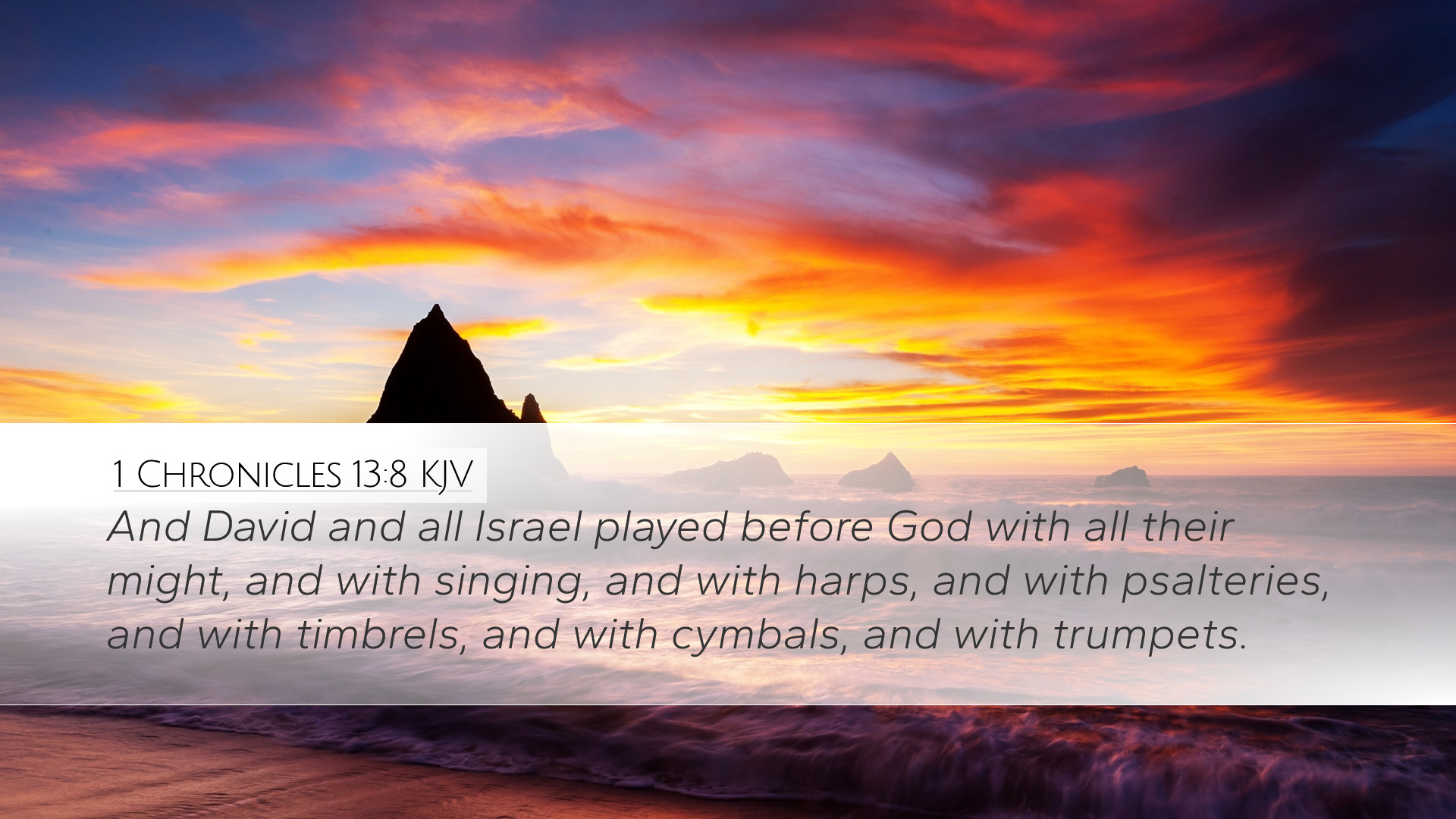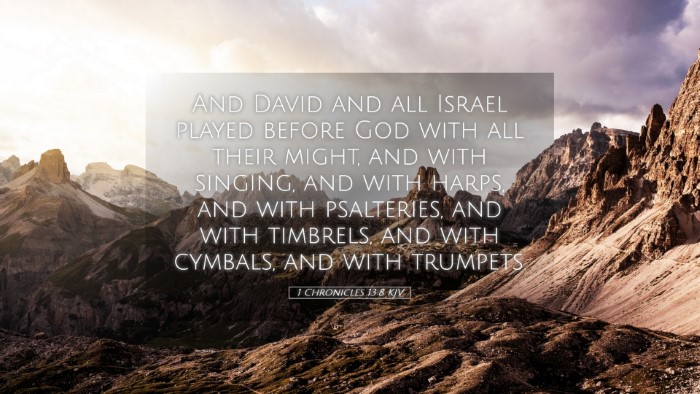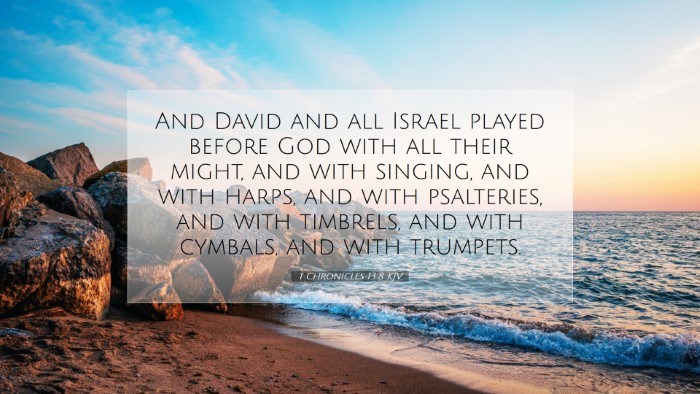Commentary on 1 Chronicles 13:8
This verse reads:
"And David and all Israel played before God with all their might, and with singing, and with harps, and with psalteries, and with timbrels, and with cymbals, and with trumpets."
Contextual Overview
1 Chronicles 13 captures a pivotal moment in Israel's history as King David seeks to bring the Ark of the Covenant to the city of Jerusalem. This act is not merely political; it represents a deep desire to centralize worship and God’s presence among His people. The joyful procession of David and Israel plays a significant role in understanding worship and community in ancient Israel.
Significance of the Ark
The Ark of the Covenant, which contained the tablets of the Law, was a tangible symbol of God's presence among His people. Its transportation from Kiryat Jearim to Jerusalem signifies a renewed relationship with God, highlighting the importance of divine guidance in Israel's identity.
Divine Worship with All Might
David is characterized in this verse as leading the people in worship with great fervor and enthusiasm. This demonstrates that:
- The Importance of Passionate Worship: The phrase “with all their might” indicates the totality of their commitment.
- Involvement of the Community: Worship is portrayed as a corporate activity rather than an individual one, symbolizing unity in purpose.
Commentary Insights
Various biblical commentators have provided deep reflections on this passage:
Matthew Henry
Matthew Henry notes that this joyous occasion reflects not only David's heart for God but also the collective joy of the people. He emphasizes the appropriate response to God's presence, indicating that true worship is characterized by joy, sincerity, and energy, embodying a spirit of unity among the worshippers.
Albert Barnes
Albert Barnes highlights the diversity of musical instruments used in praise. He draws attention to:
- Symbolism of Instruments: Each instrument served to enhance the worship experience, contributing to a rich tapestry of praise.
- Cultural Context: The use of various instruments reflects the cultural practices of the time and enriches the worship atmosphere.
This indicates that worship is multifaceted and can resonate with many different forms of expression.
Adam Clarke
Adam Clarke emphasizes the enthusiasm of worship portrayed in the text. He suggests that this moment underscores a significant shift in Israel's worship life. Clarke points out:
- Theological Implications: The celebration is not merely for public display; it holds profound theological significance as the nation recognizes God's supremacy.
- Spiritual Lessons: Clarke encourages readers to consider the importance of both joy and reverence in worship, asserting that genuine worship combines both elements effectively.
Application for Today
This verse and the surrounding narrative have profound implications for modern worship and community life:
- Unity in Worship: Just as Israel came together, congregations today are called to worship collectively, understanding that corporate worship can strengthen community bonds.
- Joyful Expression: The manner of worship described calls today’s believers to express their faith joyfully, ensuring that every act of worship is performed enthusiastically.
- Inclusivity of Worship Forms: Embracing various forms of worship and artistic expressions can help create a more inclusive environment that invites all believers to engage actively.
Conclusion
1 Chronicles 13:8 serves as a powerful reminder of the nature of worship—energetic, communal, and centered on the presence of God. The insights from historical biblical commentary not only shed light on the text but also encourage contemporary believers to reflect on how their own worship practices align with the model set by David and Israel. As they seek to bring God’s presence into their lives and communities, may they do so with passion and unity.


